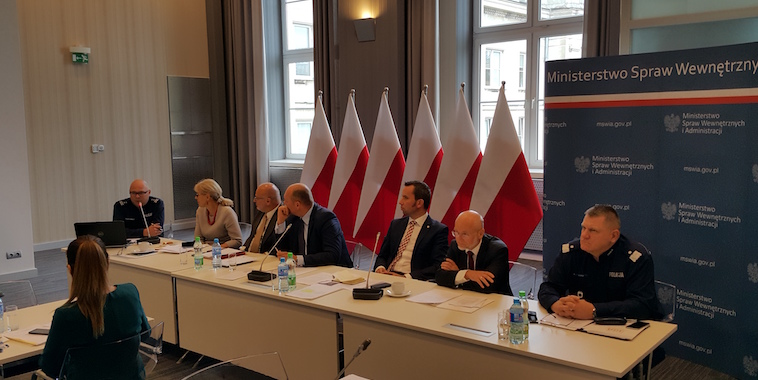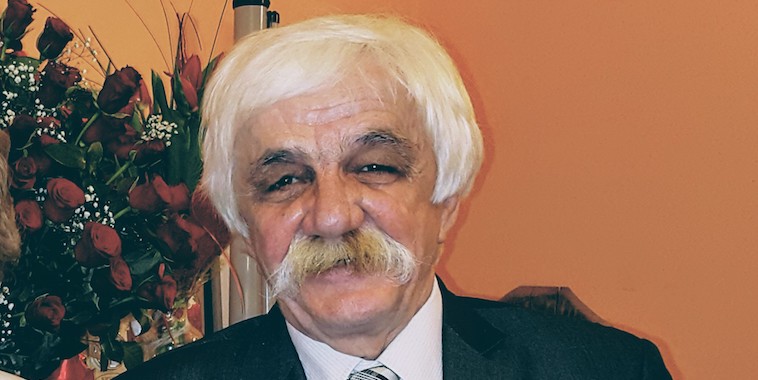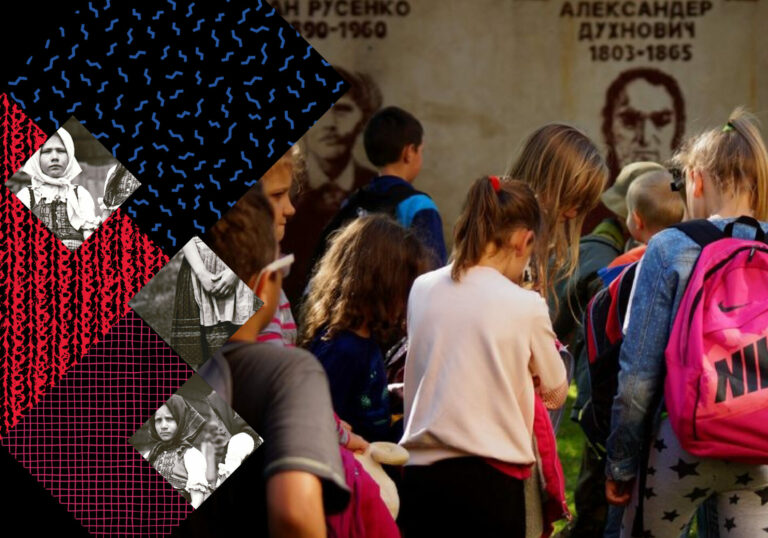Hate speech and aggression towards minorities at the Ministry of Interior and Administration meeting
Last Wednesday, on 5 October 2016 at the Ministry of Interior and Administration headquarters in Warsaw, a meeting of the Joint Commission of the Government and National and Ethnic Minorities took place. The meeting had been called by the minorities’ members of the Commission, because they wanted to address the problem of hate speech and acts of aggression towards national and ethnic minorities in Poland.
The meeting’s convocation was a result of the former meeting’s decisions that took place at the Ministry of Interior and Administration on 14 September 2016. There, apart from the agenda issues which concerned also Lemko issues (the “Vistula” Operation, minorities’ programs in the media), the problem was only superficially discussed. The hottest debate was caused by the events in Przemyśl on 26 June 2016, when a Greek Catholic procession from the local Cathedral was interrupted on their way to the Ukrainian cemetery by members of Polish nationalist organizations. The minorities’ members of the Commission reacted to the events. On the application of the Ukrainian minority representatives, they immediately (4 July) demanded convocation of an extraordinary meeting that was to cover the problems of extending xenophobic actions towards minorities in Poland and violating the law, which was read out by Rafał Bartek on behalf of the minorities. He explained the motivations behind the extraordinary meeting, giving as examples the events from Przemyśl and an news of a Polish professor who was speaking in German on a tram and was attacked because of that.
During the The 57th meeting of the Joint Commission of the Government and National and Ethnic Minorities, representatives of Polish Police presented themselves, representatives of the Prosecution General of the Republic of Poland and the Polish Border Guard, as well as Ministry of Interior and Administration officials that deal with human rights. All of the offices reported the part of their job that concerned the issues raised, they presented many statistics illustrating their actions.
Responding to the issues presented, the minorities’ members of the Commission loudly emphasized in the discussion that the problems they indicated were not the reflections of the reality. The examples of intolerance, xenophobia and aggression towards minorities supported by witnesses and documentation are not always considered to be anti-minority actions. The most active members of the meeting were representatives of the Ukrainian, Belarussian, German and Slovak minorities who presented examples of discrimination of their societies and appealed for a better understanding of a minority-specific character, the problems of speech and xenophobic actions, mostly from the point of view of the Polish offices.
Members of of the Joint Commission of the Government and National and Ethnic Minorities who represent the Lemko ethnic minority – Prof. Stefan Dudra and Mirosława Kopystiańska, Ph.D. – were absent from the meeting and probably, they had not delegated anyone to raise the Lemko issue there. What a pity. We do not know when the next occasion will be to present problems such as constant damaging of double Polish-Lemko boards with the names of villages. After Bielanka (Білянкaa/Bilanka), Ropki (Ріпкы/Ripky) and Regetów (Реґєтiв/Regetiv), also the board in Gładyszów (Ґладышiв/Gladyshiv) was damaged, just a few days before the meeting.
The Ruska Bursa Association in Gorlice declared an interest in participation in the 52nd meeting of the Joint Commission of the Government and National and Ethnic Minorities, sending an e-mail request to prof. Stefan Dudra on 1 October 2016 to be added to the official list of participants. Unfortunately, we did not get any response soon enough (it was possible to sign up until 3 October 2016). So far, we did not succeed to contact the representative of Lemko minority via phone, either. Although we would like to officially ask Prof. Dudra and M. Kopystiańska, Ph.D. about the state of affairs, it can be summed up now that together with the absence at the very important meeting in the Ministry of Interior and Administration of the two Lemko minority representatives, who were recommended for this position by organizations still unknown to us, the Lemko issues were absent there, also.
Publikacja wyraża jedynie poglądy autora/ów i nie może być utożsamiana z oficjalnym stanowiskiem Ministra Spraw Wewnętrznych i Administracji.
Публикация выражат лем погляды автора/авторів і не може быти принимана як офіцияльне становиско Міністра Внутрішніх Справ і Адміністрациі.
Zrealizowano dzięki dotacji Ministra Spraw Wewnętrznych i Administracji.
© Copyright lem.fm, 2025. Вшыткы права застережены.







